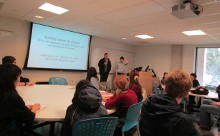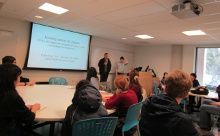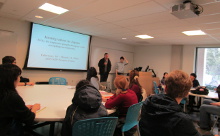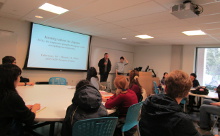- HOME
- Activities
- Project
- Project Details
Back from the US Study Trip!
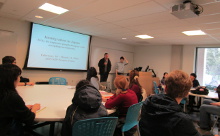
Finishing the US Study Trip for three weeks, all 13 members returned to Japan.
In the U.S., we discussed with students at universities, interviewed companies, attended special lectures from professors and graduate students, and experienced staying at dormitories.
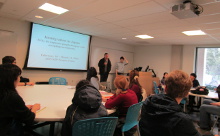
We visited St. Thomas University and Rice University in Houston, Yale University in New Haven, Harvard University, MIT, and Tufts in Boston, and Stanford University in California. In six of these universities, we had discussion on the topic, “Should Japan accept immigrants?” (“Should Japan increase the number of immigrants?” at Stanford). The students with different backgrounds participated in the discussion. There were students who are interested in Japanese culture, who are studying Japanese, who have studied in Japan, who are Japanese American, and who are half Japanese and half American. It was interesting to hear different ideas on immigrants from different viewpoints in the places we visited.
Through the discussions with the students in the US, we thought of what Japan would become after increasing the number of immigrants in the nation, such as “What would define Japanese?”, “How should the environment of workers and social system be in Japan?”, and “How will the Japanese economy and culture change?” Overall, we faced a problem that Japan is not an attractive country for immigrants.
Not only discussions and company interviews, we experienced many things such as lectures, dormitories, and interaction with people in the U.S. Through this experience, we thought of what we, Japanese students, should do in order to play an active role in the world.
